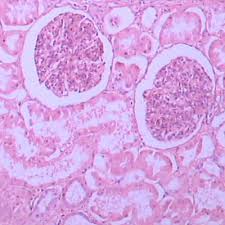
Nature of work
A histologist prepares slides of body tissue to be used for observation. He/she works in conjunction with a healthcare team or medical staff to ensure the tissue is obtained in the appropriate manner, and work on the necessary steps of preparation. He/she also helps the rest of the lab staff in any responsibilities required to prepare for observation of all tissue samples. In addition, a histologist ensures the specimens taken are acceptable and are sustainable in the required observation and diagnosis. He/she may have to dissect a few samples, prepare them in the right solution and then analyze them to provide the right medical reports. He/she also have to check the reports to find any problems and thereby assist the patients in the most efficient manner.The main duties that histologists should perform are as follows:
- Check that all the laboratory equipments are clean and have been sanitized.
- Prepare the different samples that help in carrying the medical tests.
- Examine the tissues and perform the medical diagnostic exams.
- Feed the medical records in their computer system for retrieval when required.
- Check that the tests have been performed in the right manner and the perfect medical standards have been adhered.
- Check the medical supplies and ensure that they are present in the right amount.
- Provide timely delivery of medical reports.
Environment of work
The typical working environment for a histologist is a laboratory, but the specific type and function varies widely. Histologist work in a hospital laboratory, a government agency, a medical institution, a public health department, or a research institution. While there are differences in all of these environments, they all maintain some sort of laboratory presence. Histological technicians work typical hours, even though they may work different shifts at the beginning of their career.The environment can be stressful or hectic at times since histological technicians handle different specimens. During great activity, there is some stress, however, it is usually an even-keeled environment with structure. This is usually an excellent learning environment, where histological technicians ask questions and learn how various procedures work. This contributes to becoming capable within their field and role.
Professional life
Factors that will contribute to profession development include population growth and technological advancements in diagnostic testing methods. The labor bureau projects that the best job opportunities for histologists will be in medical and diagnostic laboratories and hospitals.Range of typical starting salaries: 35000 SYP plus potential bonuses.
Getting the job
A bachelor's degree in medical technology or life sciences is the minimum requirement for a histologist position. Some employers accept candidates with an associate degree and equivalent work experience. Courses that prepare for a histology career include microbiology, statistics, chemistry and biological sciences. In addition, histology majors must obtain clinical experience as an intern or trainee in a histopathology lab. Histology internships typically last one year, though formal training programs may last longer. Most employers also require that candidates gain histology certification through professional organizations. Skills
Histologists should be highly analytical, detail oriented and methodical. Since histologists deal with human blood, tissue and other bodily fluids, it is important that they perform their duties with precision and care. Histologists should have knowledge in staining, freezing, situ-hybridization, microtomy and other laboratory techniques. They also should have strong computer, data-entry, verbal and written communication skills. Sources and references
If you need any further information on what is included in this file, you can visit the following websites: www.histology-world.com, comprehensive, fun and entertaining site devoted exclusively to histology
Histology.leeds.ac.uk, Histology Guide
www.ishc.net, Archives of Histology and Cytology
Arab Standard Classification of Occupations, 2008, Ed. Arab Labor Organization.
Summary
Histologists, also known as histotechnicians, work closely with pathologists and diagnosticians to identify the cause of patient symptoms and flag any warning signs of disease. These professionals handle and analyze human tissue and blood samples to determine how patients are responding to treatment or medication. Histologists assume managerial roles and generally perform more intricate and advanced tasks than a histologist technician.histology technician basically works with the skin tissues.
